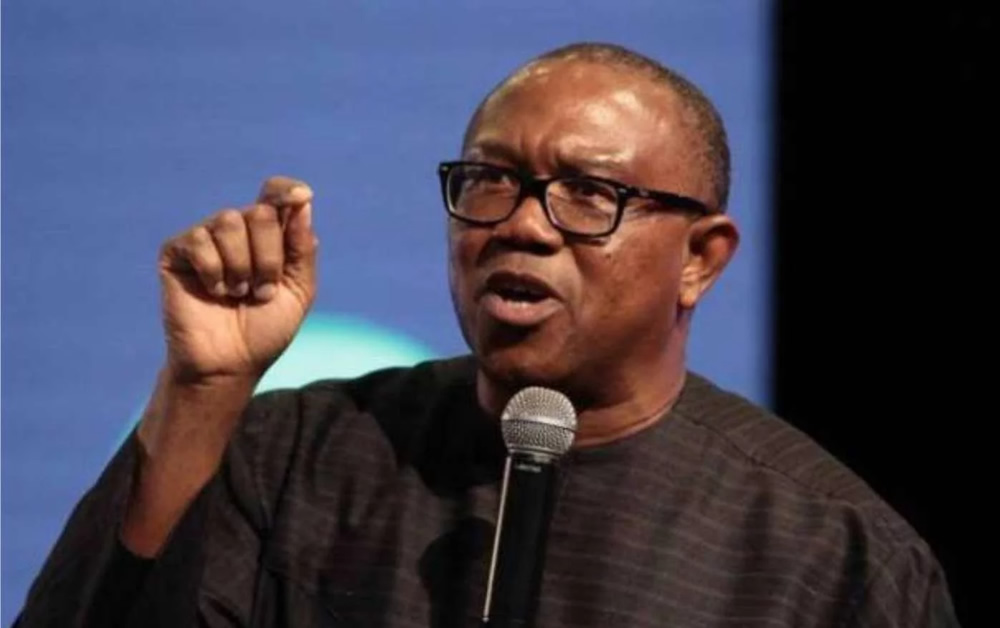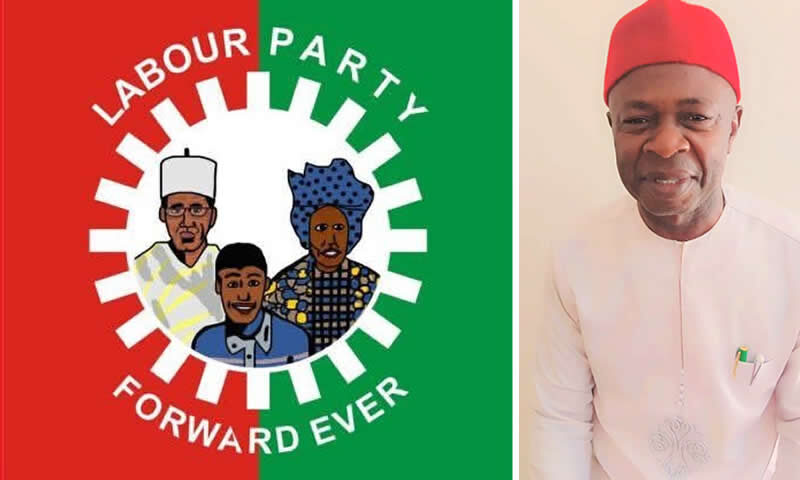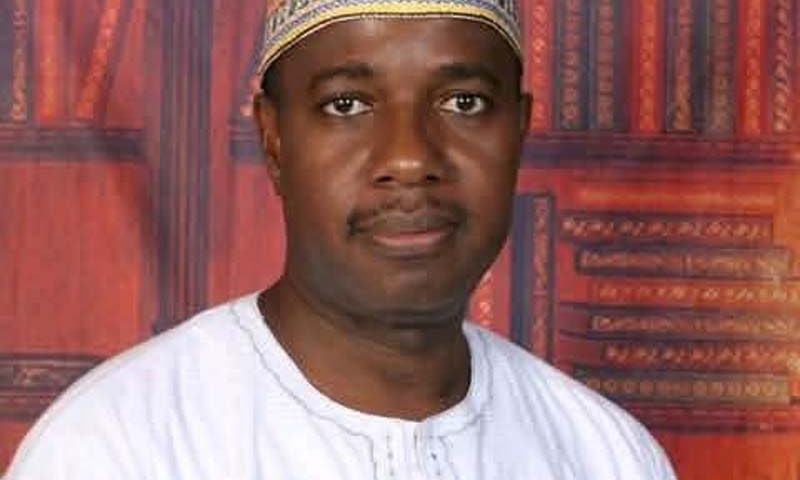“Our candidate Dr. Alex Otti is one of the strongest allies of Mr. Peter Obi, both were in the banking sector and share professional experience in fiscal prudence, administrations and leadership therefore we cannot afford to let such opportunity slip off because of personal interest of some individuals who are not intelligent enough to see the bigger picture of collective development for the future” – Njoku SaintJerry A.
Internal crisis in Nigeria’s Labour Party has spread to more states two months before the 2023 election but party members say the bickering will not affect the chances of its presidential candidate, Peter Obi, whose popularity had surprised even his critics nor any committed candidate with genuine interest for leadership shift as Mr. Peter Obi.
About 22 state chapters of the party out of the country’s 36 states “are having one problem or the other,” Ifagbemi Awamaridi, a member of the party tells The Africa Report. “We are in court and the judgment is coming up this week,” Awamaridi says, referring to his suit against the party at the federal court in Lagos.
Labour Party had routinely been one of Nigeria’s smaller opposition parties which provide a feeble challenge to the two dominant parties, the People’s Democratic Party (PDP) and the All Progressives Congress (APC), every election season.
Popularity problems
But the decision of Obi, a former governor and former vice presidential candidate of the PDP, to pick its presidential ticket in May 2022 threw the party from relative obscurity to national limelight.
The popularity arrived with problems.
In Lagos, Awamaridi, who was the Labour Party chairman and governorship candidate in Lagos State in the 2019 election, suddenly saw his position come under threat.
The national leadership of the party, desirous of riding on the Obi wave, decided to replace Awamaridi, who had also gotten the ticket to run for governor in 2023, with a more popular candidate.
They held a primary election that saw the emergence of Gbadebor Rhodes-Vivour, a 39-year-old MIT graduate who narrowly lost the senatorial election in 2019 to the APC candidate in the state.
At the time, Rhodes-Vivour was a member of the PDP. After he lost the party’s governorship primaries in May 2022, he defected to the Labour Party.
In August, the national leadership of the Labour Party announced Amawaridi as a placeholder for its governorship ticket in Lagos and organised a primary election contested by Rhodes-Vivour and Moshood Salvador, who defected to the party from the APC.
Analysts say the party realised the need for a candidate with grassroots support who stands a chance of upsetting Governor Babajide Sanwo-Olu of the APC at the polls.
Awamaridi, who ran for governor on the Labour Party ticket in the 2019 election, polled 392 votes (0.04% of the total votes cast). The eventual winner, Sanwo-Olu of the APC, got 739,445 votes. In contrast, Rhodes-Vivour, who contested the Lagos West senatorial ticket on the PDP platform, polled 243,516 votes (40% of the total votes cast).
Heading to court
Awamaridi headed to court to challenge his removal as both party chairman and governorship candidate in Lagos.
Efforts to reach a truce and settle the matter out of court have not yielded results.
“Prof Awamaridi has been settled by the party and it’s a closed case,” says Laura Ogunshola, the party’s Director, Contact and Mobilisation in Lagos State. “We called him for reconciliation with the party in Abuja. He was at the meeting with the national chairman.” But Awamaridi denied there has been a settlement, insisting that his group within the party held a congress last week where he was re-elected state chairman for another four years.
He also said he remains the party’s governorship candidate in Lagos State ahead of the 2023 polls. “My name was in the INEC list, the question is how did they change the name? They went to produce a fraudulent document that I had withdrawn my candidacy.”
Working with APC
He accused the party chairman in the state, Kayode Salako, of working for the APC in the state.
Salako, a former member of the APC, has repeatedly been accused of working for the APC in the state and its leader, Bola Tinubu. His wife, the popular actress, Foluke Daramola, remains a voracious supporter of Tinubu.
But Ogunshola said those facts notwithstanding, Salako has remained committed to the Labour Party. “Salako has done well so far as a state chairman. I’m impressed about his ability to hold still, despite calling him a mole because his wife is in APC,” she says. “We have done our investigations and we know where he stands and where his loyalty stands. The party has done its findings.”
Nationwide problem
The crisis in the Labour Party is not limited to Lagos State.
In neighbouring Ogun, the state chairman, Michael Ashade, accused the party’s presidential campaign director, Doyin Okupe, of mishandling funds approved for the party’s state members.
The state chapter of the party announced the suspension of Okupe, a medical doctor and aide of former president Goodluck Jonathan.
The suspension was, however, immediately reversed by the national leadership.
In Adamawa, north-eastern Nigeria, some members of the state executives passed a vote of no confidence on the state chairman of the party, Christopher Nicholas, accusing him of “collaborating with other political parties against the interest of our major candidates in the Labour Party.”
In Kano, in the northwest, the party’s leadership routinely fights off claims that it is working for the ruling party, the APC, in the state.
In Enugu, in the southeast, some party members sued the party for excluding them from its governorship primaries despite buying the nomination form.
In Rivers, some groups within the party are reportedly angry about an alleged deal between the party’s presidential candidate, Obi, and the state governor, Nyesom Wike.
In Nasarawa, north-central Nigeria, the party’s governorship candidate, Joseph Ewuga, openly accused the state chairman, Alexander Emmanuel, of working for the ruling APC in the state.
Speaking to the State Publicity Secretary of Labour Party in Abia state, Mr. Njoku Jeremiah Ajike, he acknowledged internal party wrangling but dismissed the existence of an issue he will refer to as “a common rancor inherent in every Nigerian made political party.” Our candidate Dr. Alex Otti is one of the strongest allies of Mr. Peter Obi, both were in the banking sector and share professional experience in fiscal prudence, administrations and leadership therefore we cannot afford to let such opportunity slip off because of personal interest of some individuals who are not intelligent enough to see the bigger picture of collective development for the future which Mr. Peter Obi is projecting through the ordinary Nigerians.” He said
Obi’s chances
Since Nigeria’s return to democracy in 1999, two major political parties – first the PDP and later the APC – have dominated the presidential elections. In the last two polls, the two parties won over 98% of the total votes cast.
The emergence of Obi as the Labour Party’s candidate had turned the traditionally two-horse presidential race into a three-horse affair. But the party’s internal wrangling across the country is serving as a distraction to the campaign.
Some commentators say the development, if not nipped in the bud, could make a major dent in the candidate’s results because Nigeria’s election is largely a political party affair.
The party’s logo – and not the candidate – will be on the ballot and the party agents who man the ballot boxes on polling day are recruited by the party. Party members, however, say the divisions would not affect Obi’s chances in the 2023 poll. Obi, himself, has largely stayed away from the crisis.
“The people’s minds are made up on who they want to vote for, which is Peter Obi,” Ogunshola says. “If you talk about other candidates, the governors, the representatives, and all that, you can say it’s gonna slow the tempo. In fact, people don’t even care about the governors and all that; their mind is set on Peter Obi.” Ashade also said the crisis in Ogun is “merely a party affair.”
“It will not affect him, I can tell you that,” he tells The Africa Report. Internal party crisis, however, is not limited to the Labour Party. The two major political parties, the APC and PDP, are also fighting one battle or the other within their ranks across Nigeria.
Awamaridi said the Labour Party is being marketed to Nigerians as being different from the dominant parties and, therefore, members should not copy what is happening in their opponents’ camps.
“If as Labour Party we say we want to revolutionize Nigeria … then some people who are supposed to midwife this thing are also in impunity, then you are talking nonsense,” he says.
“We have to, first of all, revolutionise the party first before we revolutionise Nigeria.”






